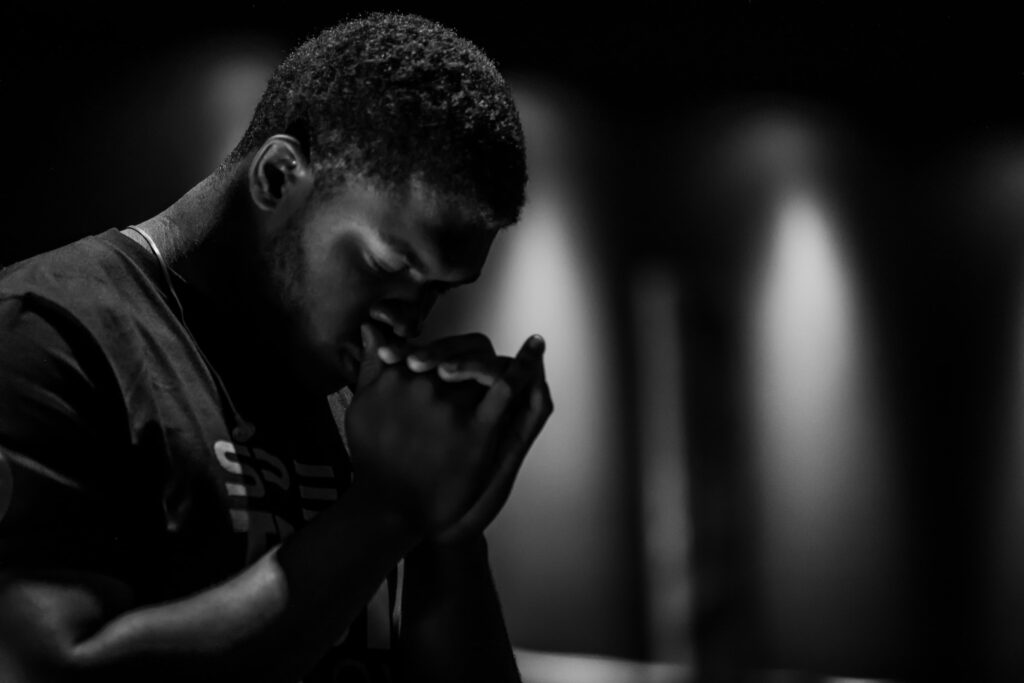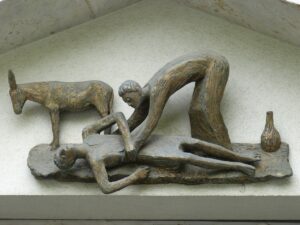Abijah, fifth king of Judah, is standing with his 400,000 men on the cusp of battle, badly outnumbered. Jeroboam, king of Israel, confidently stands with his 800,000 men, ready to get this battle started.
But first, Abijah has a speech. “Don’t you know,” he says, “that the kingship belongs to David’s line?” He goes on to speak of Jeroboam and his “worthless scoundrels” rebellion and establishment of an illegitimate kingdom, worshipping golden calves and ousting the Levitical priests so that they can be their own priests.
What Abijah says here about this haunts me. He warns that anyone who goes to sacrifice and worship “may become a priest of what are not gods” (II Chronicles 13:9).
What good is it if you’ve recreated a whole faith system and fully devoted yourself, offering sacrifices and assuming the role of priest, if the god you worship is not a god?
King Jeroboam and his scoundrels had earlier been slighted by Rehoboam, the last king of the united kingdom before the split of Israel and Judah, and Abijah acknowledges that his dad was harsh. Abijah gives them, on the battlefield before the bloodshed, a final chance to stop playing this silly game and return to the true kingdom, worshipping the true God. He warns that, despite the way the numbers look, the Lord is with him and this will not go well for Jeroboam.
Jeroboam ignores the offer. Abijah is right; it is a slaughter. The false-god-worshipping Israelites lose badly and Jeroboam is killed.
I wonder if I’m more like Judah or Israel. As I navigate life, the Bible and my walk of discipleship to Jesus; wrestle with contemporary issues; seek to better understand, honour and learn from different traditions and alternative views; try to hold this all together and discern how to live faithfully—am I holding fast to the Kingdom of God or have I driven out the legitimate priests so that I can become a priest of what are not gods?
I think what I’m wrestling with is a desire to uphold the good and faithful traditions of the church, to listen to the wisdom of those who have gone before me and learn from what has held strong and true for generations, while simultaneously recognizing that wrapped up with that good came some bad, and that religion has a tendency to reinforce itself rather than its message.
Sometimes the only way to honour the past is to break out of some of the cultural and institutional reinforcements that once stood bright and clear as a city of refuge but became a strong and sturdy fortress of protection that now can be little more than retaining walls, imprisoning its inhabitants and preventing them from seeing the beauty beyond. And it is beautiful beyond, but also wild and wondrous, and navigating faithfulness in it requires much wisdom and work.
Do I just want to have my cake and eat it too? I hope to uphold the great and beautiful tradition of the church while carefully and hospitably widening the circle. I think these can and should be two sides of the same coin.
But in this dance of figuring it all out, the story of Abijah is a fair and timely warning: Not everything should have a place. Not all is good. Be careful not to become a priest of what are not gods.
The questions we must continue to wrestle with concerning our own unending story of faith development are: What do we keep? What do we discard? What do we adopt? And what do we create anew by the Spirit’s guidance?
Joshua Penfold (penfoldjoshua@gmail.com) wrestles with the weird, wild and wonderful written word.
Read more Tales from the Unending Story:
Abandoning the Lord
Grasping God’s glory
A trickle of trust
Solomon’s splendour
An honest-to-God typo









Leave a Reply
You must be logged in to post a comment.